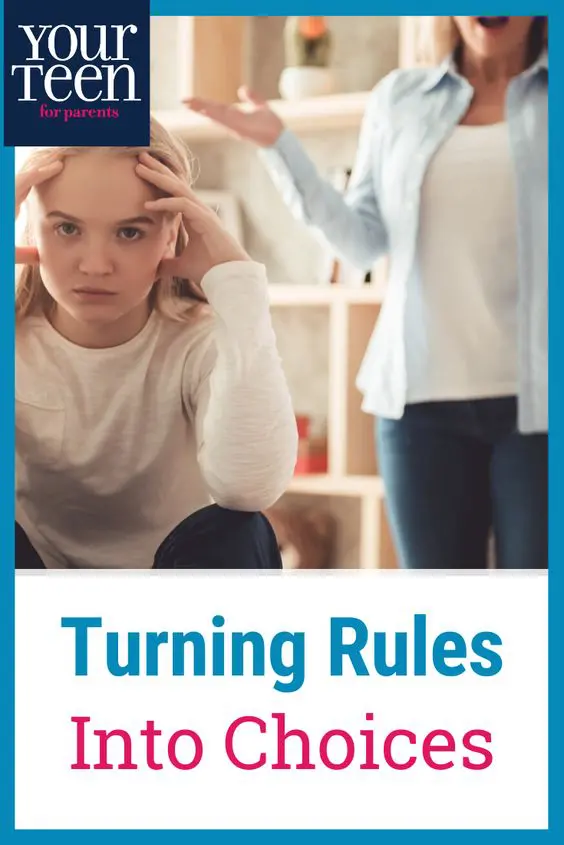Family dinner has just concluded. You request that your 14-year-old daughter clean the dishes. She sneers at you as though you’ve told her to drink sour milk. As she bolts for the door, you utter the ultimatum. “If you don’t clean the dishes, you cannot go to the movies with Angela tonight.”
Her tone quickly changes from disgust to defiance and before you know it, she is slamming her bedroom door and yelling something about you not understanding her. (Sigh)
You wash the dishes and wonder if your once-compliant little girl has been permanently replaced with a flippant teenager who perceives everything Mom says as absurdly unreasonable.

Where did this scenario go wrong and how can you avoid it?
Routines and Expectations
Ideally you’ve established rules and routines early in her life so your teenager knows what is expected of her on a regular basis. When she is asked to contribute, it is not a surprise that creates a power struggle. If you’ve never required that she contribute and you suddenly expect it when she’s 14, she’ll have a harder time accepting it than if she’s been contributing all along.
Help Teens Recognize that They Control the Outcome
Next, one of the most powerful skills a parent can master is using words that resonate with your teen and help you to influence her behavior. The trick in situations like these is to encourage teens to clearly define their options and place the onus on them to make the choice that leads to the outcome they desire.
The word “consequence” is heard so frequently by children and adolescents and carries a negative connotation. Though the true definition is simply “a result or outcome,” try to avoid using the word because it is often confused with the word “punishment”. That can make your teen feel combative.
Rather than you becoming “the punisher” who inflicts negative consequences when she makes poor decisions, your teen needs to feel responsible for her own decisions and act in alignment with her goals.
Set Goals for Behavior
Here is how you can handle this situation. There is a powerful psychological phenomenon called cognitive dissonance, which is what incentivizes us to align our behavior with our goals. When we feel conflicted, we have an overwhelming need to reduce the conflict within by changing the way we think about our behavior.
For example, if we think about how smoke destroys our bodies, it is distressing to light up a cigarette. The desire to preserve our bodies conflicts with any act that does not accomplish that goal. In order to smoke, we need to think more about how enjoyable it is and less about how destructive it is.
The key to using this concept with your teen is to get her to state her goal. Once she acknowledges it, it will be difficult for her to do something that is in conflict with it.
A Sample Conversation
Your conversation might go like this:
You: Amy, what is your goal tonight?
Amy: I want to go to the movies with Angela.
You: Who has control over tonight, Amy?
Amy: I do. (This recognition is crucial. In order to go with Angela, she knows she needs to fulfill her obligation at home first.)
Note: you need to go back to the control concept if she doesn’t readily acknowledge it. (It is crucial that she understands that her choices are the control/power that determines her outcomes.)
You: You’re going to make choices now that will determine whether you achieve your goal. What choices will get you to achieve your goal?
Amy: Doing the dishes.
You: Right! Great, so it’s up to you. You have the control/power. If you really want it, you know how to get it. I want you to get what you want in life.
Choices and Outcomes
Everything we experience is based on choices and outcomes. This is a huge lesson for your teen – that she has control because her choices determine the outcomes (consequences), both positive and negative, that befall her.

Herein lies the importance of language when navigating a potentially volatile situation with your teen. The parent who uses it to the fullest advantage empowers an adolescent to:
- Understand and create goals
- Understand what they have control over.
- Make goal-aligning choices.
These are essential life lessons, and the earlier you can instill them, the better.





